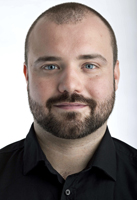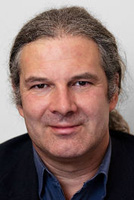VOÐAVERKIN Í PARÍS OG VELFERÐ TIL UMRÆÐU Í STRASBOURG
Á þingi Evrópuráðsins sem situr þessa dagana í Strasbourg hefur að venju verið rætt um velferðarmál og er þetta þing þar engin undantekning. Í dag bar Velferðarvaktina íslensku á góma. Hennar var getið í skýrslu sem danski þingmaðurinn Nikolaj Villumsen vann fyrir Evrópuráðið. Skýrslan fjallar um efnahagsþrengingar og viðbrögð við þeim
 og er talsvert vikið að Íslandi í henni, fyrst og fremst á lofsamlegun notum Villumsen bendir á að þegar þrengir að efnahagnum standi fátækustu hópar samfélagsins illa að vígi og sé mikilvægt að raddir þeirra heyrist. Velferðarvaktin íslenska hafi verið markviss tilraun til að skapa veikustu hópunum vettvang og hafi honum verið ætlað að verða stjórnvöldum aðhald.
og er talsvert vikið að Íslandi í henni, fyrst og fremst á lofsamlegun notum Villumsen bendir á að þegar þrengir að efnahagnum standi fátækustu hópar samfélagsins illa að vígi og sé mikilvægt að raddir þeirra heyrist. Velferðarvaktin íslenska hafi verið markviss tilraun til að skapa veikustu hópunum vettvang og hafi honum verið ætlað að verða stjórnvöldum aðhald.
 Rætt hefur verið um mikilvægi þess að standa vörð um réttindi launafólks, þar á meðal verkfallsréttinn. Þegar þýski þingmaðurinn Andreij Hunko flutti prýðliega skýrslu sína, var Guy Ryder, framkvæmdastjóri ILO, Alþjóðavinnumálastofnunarinnar, viðstaddur og tók hann undir áherslur skýrslunnar.
Rætt hefur verið um mikilvægi þess að standa vörð um réttindi launafólks, þar á meðal verkfallsréttinn. Þegar þýski þingmaðurinn Andreij Hunko flutti prýðliega skýrslu sína, var Guy Ryder, framkvæmdastjóri ILO, Alþjóðavinnumálastofnunarinnar, viðstaddur og tók hann undir áherslur skýrslunnar.
Þá hefur verið rætt um fjölmiðla og frelsi þeirra í ljósi voðaverkanna í París.
Ég var talsmaður vinstri flokkanna hér á þinginu í umæðu um voðaverkin í París og er ræða mín hér að neðan:
The mass rallies of solidarity in the wake of the attrocities committed in Paris, are a testimony to the determination that never will people give up the freedom and liberties that have been acquired through centuries of struggle. We have now once again been reminded that the struggle for freedom never ends.
„The show of solidarity gave hope and swayed fear away", said a young woman at the Paris rally.
Let us not forget that the movers of history not only advocatated ideas of change - they also challenged the existing order whether it be power structures, ideas or norms. They did this in varying ways, but sometimes only with a pen as their only weapon. And Rosa Luxemburg hit the nail on the head when she said that „freedom is always freedom for the one who thinks differently." And in the same vein, Albert Camus, reminded us that : „A free press can, of course, be good or bad, but, most certainly without freedom, the press will never be anything but bad."
The message is clear, that when freedom of the press is challenged we all must rally to its defence. That defence is the defence of a free and democratic society.
But a show of solidarity for freedom may easily be transformed into something it was never meant for - even its opposite, a demonstration of force!.
From history we know that strong emotions are easy pray to manipulation and tendencies in that direction are certainly evident now. Political leaders should be aware that when feelings run high, power-political manipulation is playing with fire.
After the attack on the Twin towers and prior to the invasion of Iraq, George Bush junior used the word Crusade to rally his forces against the enemy. He did not use the term often, but when he did there were more recruits enlisting for Al Quaeda than at any other time in these troubled days.
The marches taking place in Europe and other parts of the world after the attacks in Paris are for liberty and for freedom of expression, for freedom in general and should not be interpreted as a confrontation. They may be a show of streangth - but above all of moral strength.
In the autumn session of the Council of Europe we were adressed by the president of Stortinget, the Norwegian Parliament, Olemic Thommessen. He explained in a moving speech how the Norwegians dealt with the horrendous terrosist attack wherby 77 young Norwegians were murdered in Utöya by a home-grown terrorist in the words of Thommessen. "The answer from ... Norwegians, who poured onto the streets in the days that followed," he said, "was less one of demanding retribution than of sending out a message of defiance. People marched in silence, many carrying a single rose to remember the 77 victims. It was, in the words of the then Prime Minister, Jens Stoltenberg, a message of "even more democracy, even more openness, but never naivety".
Olemic Thommessen recited a poem called the Answer by Helge Torvund:
And what was the answer in the poet´s words?:
...
Never a bomb in our name/
Never a gunshot/
Let us never forget/
We don't want revenge/
We will win/
with peace"
The United Left in the Council of Europe is grateful for this opportunity to express our determination, not to give up in our never-ending struggle for freedom.
.

